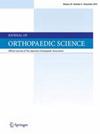Validation of the Japanese version of the scoliosis research society-30 questionnaire for adult patients with spinal deformity
IF 1.4
4区 医学
Q3 ORTHOPEDICS
引用次数: 0
Abstract
Background
The Scoliosis Research Society-30 (SRS-30) is a questionnaire that was originally developed from the SRS-22r questionnaire and is used to evaluate adolescent idiopathic scoliosis (AIS). It comprises two sections, with Section 1 containing 22 items related to the SRS-22r questionnaire and 1 item regarding self-image and Section 2 containing 7 items specifically related to postoperative status. The SRS-30 has been also found useful in evaluating spinal disorders or deformity in adults. However, the Japanese version of the SRS-30 (Japanese SRS-30) has been validated for adolescent idiopathic scoliosis, but not for adult spinal deformity (ASD). This study aimed to assess the internal consistency and external validity of the Japanese SRS-30 for ASD.
Methods
Of the 30 questions on the SRS-30, 8 questions added from the SRS-22r were translated and back-translated to create the Japanese SRS-30. The Japanese SRS-30 was used to survey patients with ASD who underwent corrective fusion surgery within 1 postoperative year. The internal consistency of the responses was evaluated using Cronbach α coefficient. Additionally, we performed Spearman correlation analysis of the Oswestry Disability Index (ODI) and SRS-22r with the Japanese SRS-30.
Results
We included 120 patients (20 males and 100 females; mean age at surgery, 53.3 years). The mean preoperative Cobb angle, sagittal vertical axis, and pelvic incidence minus lumbar lordosis were 36.9°, 81.8 mm, and 24.0°, respectively. The Cronbach α coefficient for the overall SRS-30 was 0.941, indicating high internal consistency. Moreover, the coefficients for each domain were as follows: function/activity, 0.864; pain, 0.783; self-image/appearance, 0.858; mental health, 0.916; and satisfaction, 0.763. The total SRS-30 score was significantly correlated with the total SRS-22r score (r = 0.966, P < 0.001) and ODI (r = −0.752, P < 0.001). The SRS-30 domains showed strong correlations with the corresponding SRS-22r domains, with the r values ranging from 0.878 to 1.000 (all P < 0.001 except mental health).
Conclusions
The Japanese SRS-30 demonstrated good internal and external validity. The Japanese SRS-30 can be used to assess health-related quality of life in patients with ASD.
脊柱侧凸研究协会-30 成人脊柱畸形患者问卷日语版的验证。
背景:脊柱侧弯研究协会-30(SRS-30)问卷最初由SRS-22r问卷发展而来,用于评估青少年特发性脊柱侧弯(AIS)。它由两部分组成,第1部分包含22个与SRS-22r问卷相关的项目和1个关于自我形象的项目,第2部分包含7个专门与术后状况相关的项目。SRS-30 在评估成人脊柱疾病或畸形方面也很有用。然而,日语版的SRS-30(Japanese SRS-30)已针对青少年特发性脊柱侧凸进行了验证,但尚未针对成人脊柱畸形(ASD)进行验证。本研究旨在评估日文版SRS-30对ASD的内部一致性和外部有效性:方法:在 SRS-30 的 30 个问题中,翻译并回译了 SRS-22r 中新增的 8 个问题,从而创建了日语 SRS-30。日语 SRS-30 用于调查术后一年内接受过矫正融合手术的 ASD 患者。我们使用 Cronbach α 系数评估了回答的内部一致性。此外,我们还对Oswestry残疾指数(ODI)和SRS-22r与日本SRS-30进行了斯皮尔曼相关性分析:我们共纳入了 120 名患者(男性 20 人,女性 100 人;手术时平均年龄为 53.3 岁)。术前Cobb角、矢状垂直轴和骨盆内陷减去腰椎前凸的平均值分别为36.9°、81.8毫米和24.0°。总体 SRS-30 的 Cronbach α 系数为 0.941,表明内部一致性很高。此外,各领域的系数如下:功能/活动,0.864;疼痛,0.783;自我形象/外观,0.858;心理健康,0.916;满意度,0.763。SRS-30 总分与 SRS-22r 总分呈显著相关(r = 0.966,P 结论):日本 SRS-30 具有良好的内部和外部有效性。日本 SRS-30 可用于评估 ASD 患者的健康相关生活质量。
本文章由计算机程序翻译,如有差异,请以英文原文为准。
求助全文
约1分钟内获得全文
求助全文
来源期刊

Journal of Orthopaedic Science
医学-整形外科
CiteScore
3.00
自引率
0.00%
发文量
290
审稿时长
90 days
期刊介绍:
The Journal of Orthopaedic Science is the official peer-reviewed journal of the Japanese Orthopaedic Association. The journal publishes the latest researches and topical debates in all fields of clinical and experimental orthopaedics, including musculoskeletal medicine, sports medicine, locomotive syndrome, trauma, paediatrics, oncology and biomaterials, as well as basic researches.
 求助内容:
求助内容: 应助结果提醒方式:
应助结果提醒方式:


